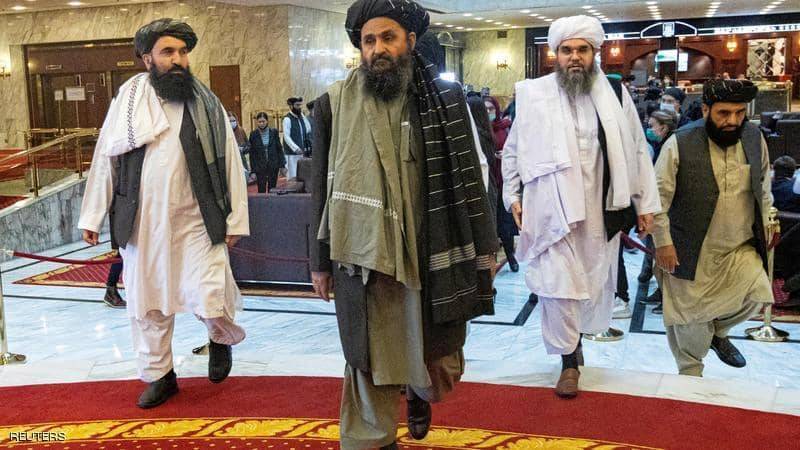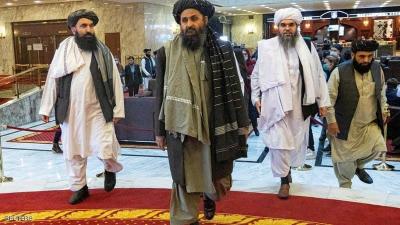Sources within the Taliban have indicated that Mulla Abdul Ghani Baradar, one of the movement's founders, will head the new government in Afghanistan as the new leaders finalize the team that will lead the country following the Taliban's victory at the end of a 20-year war. Here are some details about the key figures expected to hold prominent positions in the new government:
**Hibatullah Akhundzada**
A source from the Taliban stated that the supreme leader of the movement will act as a guide for the new government, focusing on religious affairs and governance within the framework of Islamic law. Akhundzada, a law professor who tends to avoid public appearances, took leadership of the movement after the killing of his predecessor, Mulla Akhtar Mansour, in a U.S. drone strike in 2016. The United Nations noted that he was the head of the judicial system imposed by the Taliban during its rule in Afghanistan between 1996 and 2001. After being appointed leader of the Taliban, Akhundzada moved cautiously to unify the movement, making changes to its senior positions in an effort to strengthen his authority and end internal divisions while preventing members from defecting to rival groups like ISIS. One of his sons carried out a suicide attack on an Afghan army base and was killed in Helmand in 2017. Akhundzada has not made any public statements since the fall of Kabul to the movement, and there are rumors that he may have died some time ago.
**Abdul Ghani Baradar**
Baradar was once a close friend of the movement's founding leader, Mulla Mohammad Omar, who personally chose the nickname "Baradar," meaning "brother." He served as the deputy defense minister during the Taliban's previous rule over Afghanistan. A UN memo reported that after the movement was ousted from power, he worked as a senior military commander responsible for attacks against coalition forces. He was captured and imprisoned in Pakistan in 2010, and after his release in 2018, he headed the Taliban's political office in Doha, becoming one of the key figures in peace talks with the United States.
**Sher Mohammad Abbas Stanikzai**
Stanikzai, who was Baradar's deputy in Doha, received military training in India and graduated in 1982. Fellow students recall that he enjoyed hiking and swimming in the Ganges River and did not show any inclination towards extremism. After graduation, Stanikzai participated in the Soviet-Afghan war and served as deputy foreign minister in the first Taliban government. He assisted in establishing the movement's political office in Doha and was a senior envoy to foreign diplomats and media.
**Mulla Mohammad Yaqub**
He is the son of Mulla Mohammad Omar, the founder of the movement, and initially sought to succeed his father in 2015, but left angrily from a meeting of the movement's council that appointed Mulla Akhtar Mansour as leader. He eventually reconciled with the leadership and was appointed deputy to Akhundzada after Mansour's death. Still in his early thirties, he lacks the extensive combat experience characteristic of the movement's prominent field leaders; however, he enjoys the loyalty of part of the movement in Kandahar due to the prestige of his father's name. Last year, he was appointed as the overall head of the Taliban's military committee overseeing all military operations in Afghanistan. Although some Western analysts see him as relatively moderate, Taliban leaders mentioned that he was among those who pressured for the military campaign against cities in the weeks leading up to the fall of Kabul.




